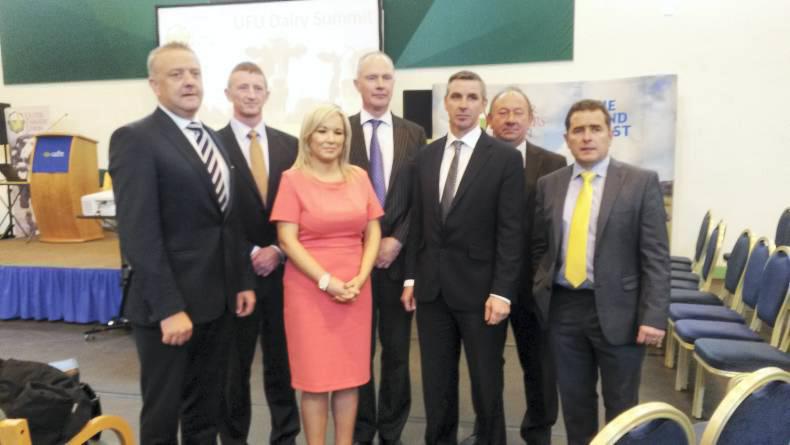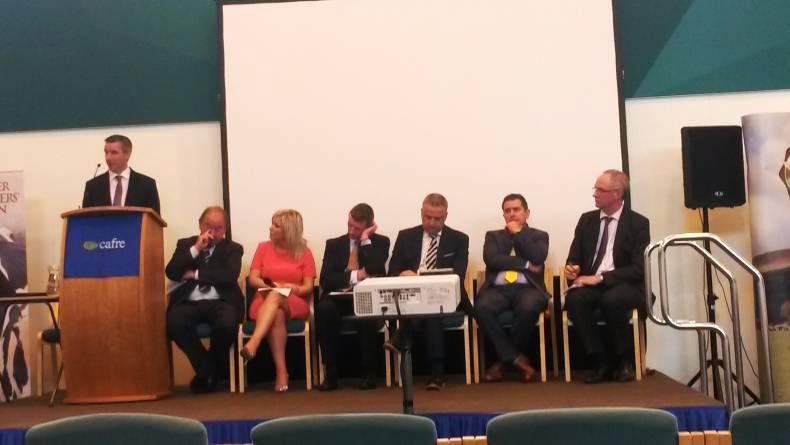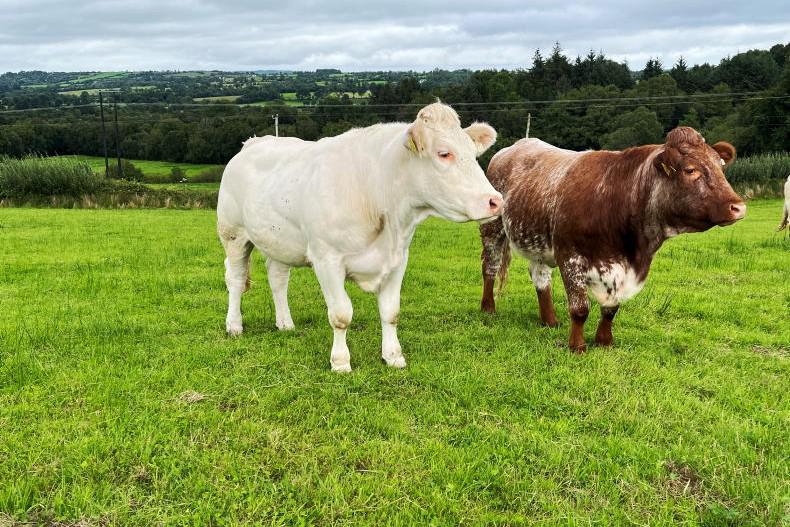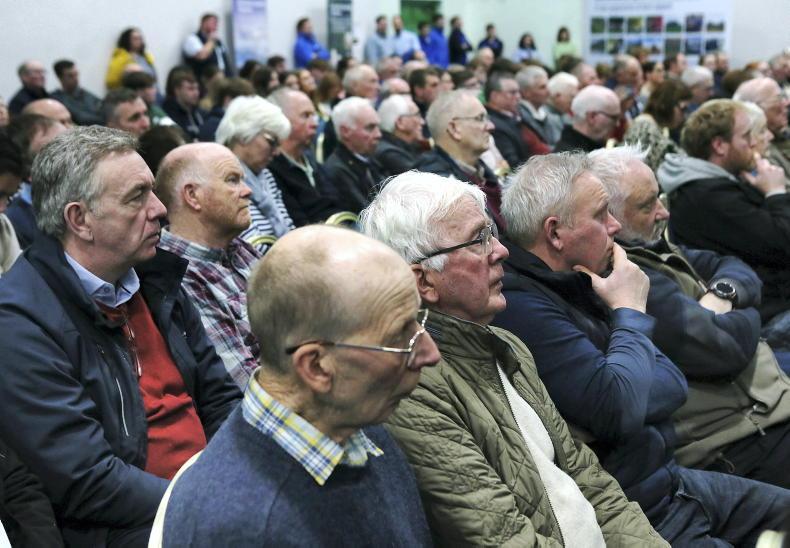The attendance of approximately 200 industry stakeholders at the Ulster Farmers Union’s (UFU) dairy summit at Greenmount campus yesterday (Thursday) was lower than anticipated, with around half the audience actual farmers.
It was a disappointing turnout in the face of a crisis on NI dairy farms. However, Minister for Agriculture Michelle O’Neill put it down to farmers having had enough of talking and wanting action to overcome depressed dairy markets after several difficult months for farm businesses. All speakers were in agreement that raising intervention price level in Europe was a key action to help the industry in NI.
“The intervention mechanism is needed to provide a safety net in times of poor market returns. The current system is out of date and no longer fit for purpose,” said Trevor Lockhart, CEO of Fane Valley Co-op.
Minister O’Neill said she accepted the industry could not rely on intervention alone but described EU Agriculture Commissioner Phil Hogan’s reluctance to increase levels as unsustainable. She will be attending the special Agricultural Council meeting in Brussels on 7 September.
Even though DEFRA Secretary Liz Truss, who has not been supportive of increasing intervention, will be speaking on behalf of the UK at the meeting, Minister O’Neill said she would sidestep her by speaking to Commissioner Hogan herself at a meeting planned for this Monday. She will also be looking to utilise support coming from other member states that are keen to raise the market safety net.
On-farm
While market support is seen as vital, a number of the speakers did emphasise the importance of farmers cutting out unnecessary cost within their own businesses. Chairman of the NI Assembly’s agriculture committee and dairy farmer William Irwin MLA said: “There is little we can do to influence the global market but we can do things within our own farm gates as farmers.”
CEO of Devenish Nutrition Owen Brennan said: “Look at what expenditure is essential and then what expenditure can be avoided without penalising the business.”
He said that cost reduction was important but not when it affects fertility or health of cows, which can also lead quickly to welfare problems and will be detrimental in the longer term.
Brennan estimated that on average in NI, 50-60% of a farm’s milk cheque from October 2015 to May 2016 will be used for feed costs. He said that there was a natural advantage to growing grass here and there was great scope to grow and utilise more forage on farms.
However, on low-cost versus high-cost systems, he said: “Be careful of jumping in and out of systems. I expect to see very different systems being very successful at both ends of the spectrum in the future.”
Robert McCullough from Dankse Bank also highlighted the importance of technical efficiencies to cut costs and having a business model that can manage volatility.
He said that financial advice was available to farmers through the banks, accountants and CAFRE advisers.
McCullough said: “There hasn’t been too many farmers come forward looking for finance yet,” but added: “You must talk to the bank to identify issues early to facilitate planning for the months ahead.”
He said that at Dankse Bank dairy support loans have been made available and as well as loan top-ups, an increase on an overdraft was very easy to put in place. McCullough also mentioned repayment holidays but pointed out that these did not make extra capital available to the farmer and believed these were not as useful as some may believe.
Volatility
Among the tools to help farmers in the longer term might be the use of futures markets as a tool to manage market volatility. Minister O’Neill said that Liz Truss is setting up a working group to look as the issue.
Fane Valley Chief Trevor Lockhart said that there was a need to be active in building these models to help protect against market and currency volatility but that it would require a change in attitude in the industry as spot price on the market at a point in time may not match a contract price that is designed for longer-term stability.
Recovery
On price prospects for the months ahead, the Global Dairy Trade price index increased by 14.8% last week, but Lockhart said that any lift in prices was from a very low base. He added: “Any positive change is welcome, but there remains more downward than upward pressures.”
UFU dairy committee chairman Jonathon Moore said: “It will be a number of months before we return to profitability even if the GDT recovery is the start of sustained recovery.”
UFU president Ian Marshall also stated that prices were likely to get worse before they get better. He was also asked about recent protests, which he said had publicised the issues facing farmers. But he said that it was essential not to alienate the general public.
Marshall ruled out UFU organised protests: “We have not got a good track record in being militant and coming out to the streets in Northern Ireland. Negotiations, discussion and debate are needed to thrash out the tools to get us through this.”











SHARING OPTIONS